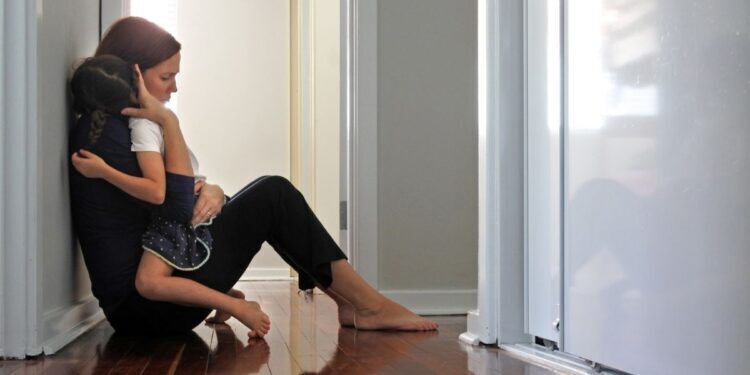Resiliency. Buzzwords are commonplace among the military community, but this one in particular causes me to groan with a very definable angst and makes my stomach turn. For years, this word has been shoved down my throat, plastered onto my backside like a bumper sticker, and used to communicate to the general public that military families “can take it” because we always “bounce back.”
The truth? We don’t always bounce back. And, even when we do, the process isn’t quick and, many times, we don’t recuperate before we are bracing for another hit that negatively impacts our families. Yes. We do hard things. And we do them again. But, the word “resilient” isn’t an accurate depiction. I have found that my spouse’s decision to serve nearly 20 years ago has impacted literally every area of our lives together, the cost was higher than we budgeted for, and I haven’t recovered from all of it. Resentment is the word that I think better describes the challenge I’m facing.
In 2019, my husband deployed to an undisclosed location for about 7 months. This particular season was wrought with the usual challenges of loneliness and isolation. But, in addition to the regular issues I expected to walk through, there was a death in the family, no small amount of anxious meltdowns (for me and my children), a military house crashing down around my ears, the loss of a job I loved, and my grandmother was diagnosed with terminal lung cancer. All of these things and more piled up on top of one another and seemed to rise to the sky. I had done hard things alone before, and I would do them again. But this season felt never ending and overwhelming.
Then, in 2020, my husband returned home only two weeks before the whole world shut down…and after about nine million flight delays which caused him to miss our son’s birthday by two days. Before he had been home for eight weeks, orders for a 365 unaccompanied tour to Korea dropped and I couldn’t even begin to process what was happening. I hadn’t even had time to recover and now I was faced with a mid-COVID pandemic DITY move, homeschooling in a new place, house shopping alone, and getting back on the roller coaster of military sanctioned separation for an entire year.
The emotion of all of it finally hit when I had to tell our kids that Dad would be missing another year of all of their birthdays, the holidays, and their first day of school…again.
For me, the hardship of swallowing a word like resilience is firmly rooted in the fact that it implies my family and I can recover or heal from the hurts or high costs of military service. Even now, I have aches and pains from old wounds that still haven’t healed. My heart bears every scar of watching my children cry themselves to sleep during a deployment or after another move. I can’t shake the weariness I still feel when it comes to building and rebuilding my life every two to four years. I can’t even begin to unpack how frustrated I am with the fact that I have two degrees and I’ve worked more odd jobs or retail gigs than I care to count. Not to mention, at the end of supporting a family for almost two decades, I have no retirement of my own and our financial situation is…not where we wanted it to be this close to retirement.
I resent that there is no practical way to honor the multitude of sacrifices I have been asked to make these last several years. I resent the experience of constantly feeling misunderstood, or unseen by our peers outside of the military community. More resentment hits because I wanted a career and a little more comfort than we have ever enjoyed. I resent the hardship of gaining and losing friends who we depended on. I hate that I have asked my kids to give up more than they should at their age. I really resent the fact that continuity in care could have caught all of our neurodivergent issues earlier. If I’m honest, sometimes my resentment gets aimed at the wrong place or person and I have had to really sit with how to offer kind grace to my spouse.
Ultimately, what I’m really saying is that my challenge isn’t learning how to “bounce back” faster or plaster a smile on my face and pretend everything is fine. I’ve let go of the belief that all I need is a better check-list or a more efficient system to “get back on track.” What I’m learning is that I am in the long process of untangling years of resentment and attempting to find healing. The best way I can describe how this feels is almost like looking out your front door after a tornado has torn through. The damage is immense and debris is everywhere. I’m taking account of the areas in our life where we need to clean up and restructure. I’m evaluating what can be repaired and what spaces we need to start over through rebuilding. I’m beginning with taking out the trash by dealing with the garbage heap of my piled up resentment. Forgiveness and gratitude seem to be two of the best tools I have. So, with hope for healing and a desire for restoration over resilience, I’m working to foster forgiveness and teach my heart to be grateful. Let’s let go of trying to be “resilient.” Instead, let’s deal with the other “r” word by naming it, sifting through it, and working toward something new.




